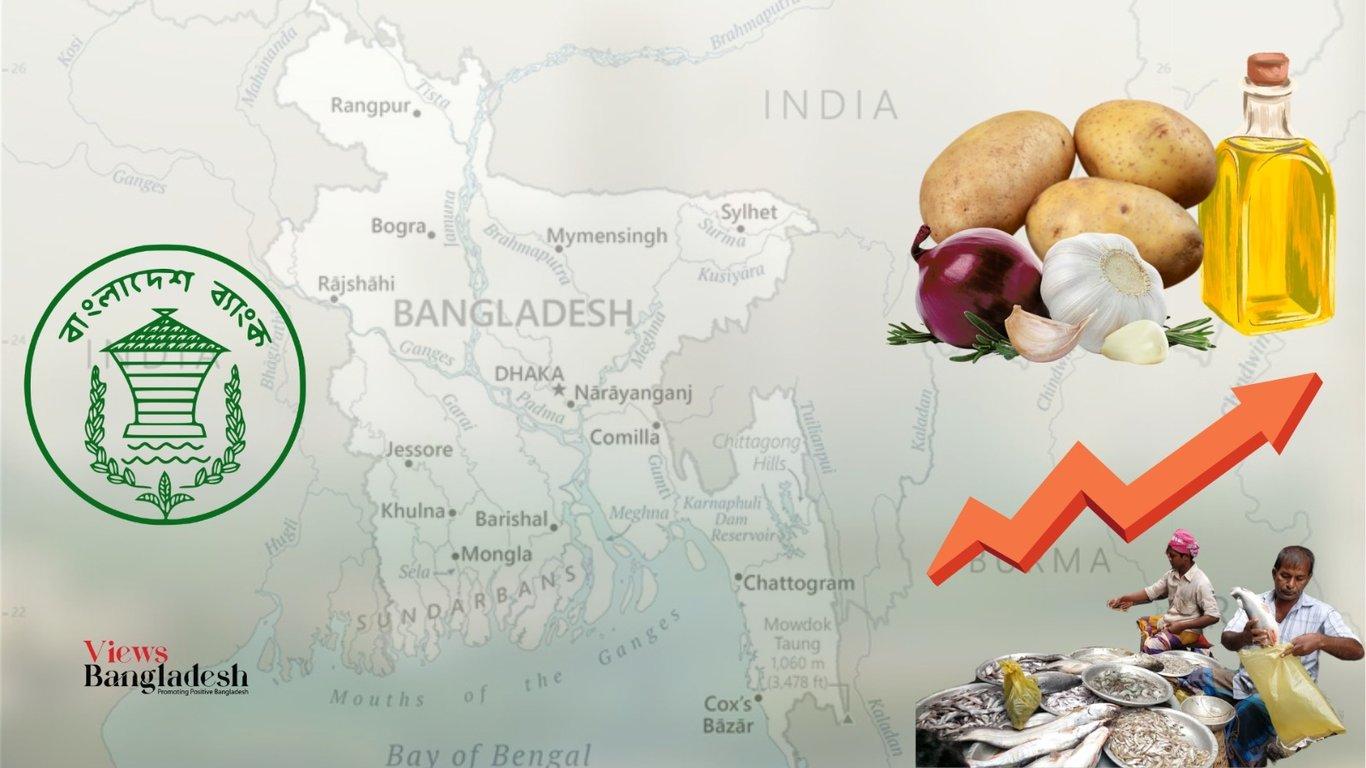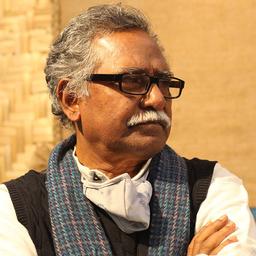Inflation causing economic bleeding in Bangladesh

Bangladesh's domestic economy has been experiencing high inflation for a long time. Countries around the world started experiencing high inflation after the Russia-Ukraine war began. However, most of the countries were able to control the high inflation and bring it down to a tolerable level, but Bangladesh could not make any visible progress in this regard. Inflation has been hovering around double digits for days. Although it has come down a little at times, but the rate is not very significant. The biggest problem we have here is that inflation is not being accounted for properly. As a result, it is not possible to estimate how dire the situation is. The role of the Bangladesh Bureau of Statistics, which is the main source of all the country's data, is a government agency that plays a very important role in this regard. Because if the statistics are not correct then the real picture of the country will not be available and the plan based on those statistics can never be correct; But the reality is the organization cannot work properly as there is so much influence and direction from various quarters of the government in the formulation of statistics which cannot be ignored by the department. Various examples suggest that while compiling statistics, the officials concerned were directed that government developments should be emphasized, keeping the failures aside as much as possible.
For example, the high inflation that we witness in the market is not reflected in the government papers. Currently, inflation is shown to be 9.5 percent. Food inflation in the middle was shown at 12.5 percent; But in the market, we see that the price of food products has increased by 50 to 100 percent in some cases. Overall average inflation should not be less than 20 percent; But the latest government statistics show average inflation at 9.41 percent. As a result, common people do not believe the inflation statistics provided by the government.
Certain rules work in economics. According to Kautilya's Arthashastra, there are two causes of inflation--'demand-pull inflation' is caused by developments on the demand side of the economy, while 'cost-push inflation' is caused by the effect of higher input costs on the supply side of the economy. Costs can go up for a variety of reasons. Import costs may climb. The cost of producing products locally can increase as well. Apart from this, we are seeing some cases--gas prices, imported fuel prices and transportation costs have soared. As a result, the production cost of most of the products has gone up as compared to the normal period. This rising cost of production is ultimately borne by the consumer. If for some reason money flow increases in the economy, if income suddenly goes up, then inflation can occur in the market. Again, income of some people in the society goes up abnormally.
The affidavits of the wealth submitted by various political leaders at the local level in the 12th National Parliament election showed that many of them have multiplied their wealth from hundreds to thousands of times. This is the 'legitimate' income shown by them. Apart from his declared income, they have undisclosed illegal income too. If the total wealth is taken into account, it will be seen that the income of the top 5 percent of the society has expanded manifold. They cannot provide any satisfactory explanation as to how this income rose so much. The 5 percent rich of the society do not keep the money that they earn in legal and illegal ways in the country, they sent it out of the country; But its harmful effects remain on the country's economy. The wealthy groups in the society emptied the banks by taking loans from those. They are grabbing money in the name of implementing big projects. The initial cost estimate for each project is many times higher than the actual cost. The pressure of this elevated expenditure is falling on the common man. The process by which the top 5 percent of society is acquiring wealth is causing the price of many things to rise.
Some monopolistic groups are responsible for hike in the prices of various products in the local market. In economics, they are called 'Oligopoly'. If the market is under the control of such a group, then the commodity price in that market cannot be determined on the basis of normal situation i.e. demand and supply. This group can raise or reduce the product price as they wish. The market of Bangladesh is an 'oligopoly' market. So the general formula of economics is not applicable here. In this situation the monetary policy formulated by the central bank cannot work properly. For the market economy to function properly, there must be maximum transparency, accountability, availability of all information, etc. If a monopoly or 'oligopoly' is effective in an economy, then various mechanisms of economy will not be able to work properly, and if the interests of some beneficiaries are protected by instructions from the power, then the general formula of economy will not be able to work.
In such a situation inflation cannot be controlled by increasing or decreasing the interest rate of bank loans. Central banks in 77 other countries around the world, including the United States, have raised policy rates massively after global high inflation. Apart from this, some other measures have been taken. It has brought down the high inflation of the countries tolerable level. Bangladesh Bank has increased the policy rate several times. Earlier the policy rate was 5 percent, now it has been increased to 8 percent; But still the private sector Bank loan growth could not be brought down. This is because even though the policy rate has been increased, the maximum interest rate on bank loans has been capped at 9 percent until recently. As a result, the process of stepping up the policy rate could not play any role in controlling inflation. Bank loans to individuals become relatively cheap. Many have utilized this opportunity by taking loans from banks and diverting them to different sectors. Many are even complaining that these amount have been smuggled abroad. If the entire monetary system had functioned independently and in an organized manner, inflation might not have surged so much. High inflation can never be controlled by monetary policy alone in a country like ours where some group controls are in place. How will interest rates work where some groups take loans from banks, only to default it and this quarter get co-operation from the authorities?
The country's banking sector is in dire straits. An influential group has embezzled thousands of crores of takas from this sector. Money is being laundered abroad through import-export of goods. Maybe you are importing a product of Tk100 but the import cost is shown as Tk200. Again, by exporting products worth Tk100, the export income is shown as Tk50. In this way money is being laundered under the guise of foreign trade. An easy method of money laundering is international trade. The United States research organization Global Financial Integrity (GFI) mentioned in a report a few years ago that Tk64,000 Crore are smuggled abroad every year from Bangladesh only in international trade. High inflation is not an issue for those who make money illegally; But for the common poor and lower middle income people, high inflation spells dire danger and misery. The cost to the common man due to high inflation can be realized by looking at TCB's truck sales line. Imbalance is being created in the country's economy due to the money laundering. The suffering of the majority of people is growing drastically. Because they are not able to upgrade their income. Due to high inflation, the real income of the majority of people is decreasing day by day.
Another major reason for high inflation is rising import dependence. The country is increasingly dependent on imports. For example, import dependence and costs are soaring up in the gas and electricity sectors. We had access to cheap gas. There was an opportunity to get electricity at a low price; But without using that opportunity, special groups are being given the opportunity to import LNG for business. Expenditure in this sector has surged manifold especially due to LNG-based power generation. As a result, the cost of production has increased. If the gas is extracted locally, the amount of gas that could be obtained at Tk2, the amount of gas (LNG) being imported is Tk200. Generating electricity at high cost has increased the overall cost of production of various products. As a result, the prices of these products have intesified abnormally in the market. When the price of fuel oil rises in the international market, the government increases the price of fuel oil in the local market. It was then said that if the price of fuel oil decreases in the international market, the price of fuel oil will be adjusted in the local market. Now the price of fuel oil in the international market has decreased a lot; But the price of the product has not been reduced in the local market. The cost of transportation has went up due to the rise in fuel prices. And if the cost of transportation mounted up, it is natural that the price of goods will increase. Cost hike were not inevitable in those sources where rising cost led to product price increases. The government has put the economy of the entire country in a fragile state to give business benefits to the special people.
Widespread extortion is another reason behind the surge in commodity prices or high inflation which the government could have controlled but no effective initiative has been taken in this regard. The product which is bought at the farmer level for Tk10, the price of that product after coming to the capital rises to Tk100. The price of the product should not exceed 30 Taka after paying the transportation cost; But we, the consumers in the capital, are getting that product for Tk100. Farmers who are producers do not get the right price while the consumers do not get the product at a comparatively affordable price. In the middle, active middlemen are looting the profits. During the transportation of any goods, a fee has to be paid at the wharf as the current political system has no accountability. So extortionists are able to continue their activities unhindered. People from various levels of the government party, including members of a class of law enforcement agencies, continue to extort money. Transport costs are increasing abnormally mainly due to massive extortion. If extortion and importation of unnecessary goods continue, it will not be possible to control high inflation in any way.
The question may arise, who is responsible for this high inflation? The government's policy framework is definitely responsible for this. The government is trying to solve this problem in various ways without taking the initiative to control the root cause of high inflation. If the government cannot stop the massive extortion of the transport sector, control unnecessary imports, stop bank looting, if the overspending projects continue and above all, if the bleeding in the economy is not stopped, then by any theoretical order the government cannot check the abnormal state of the economy. High score Inflation cannot be controlled. Institutions that regulate the economy, such as the Bangladesh Bank, are not able to function independently and properly. All organizations are making decisions as per the order above, institutional processes are not working. This situation must change.
Author: Economist and retired professor, Department of Economics, Jahangirnagar University
Transcribe: M A Khaleqe


Leave A Comment
You need login first to leave a comment